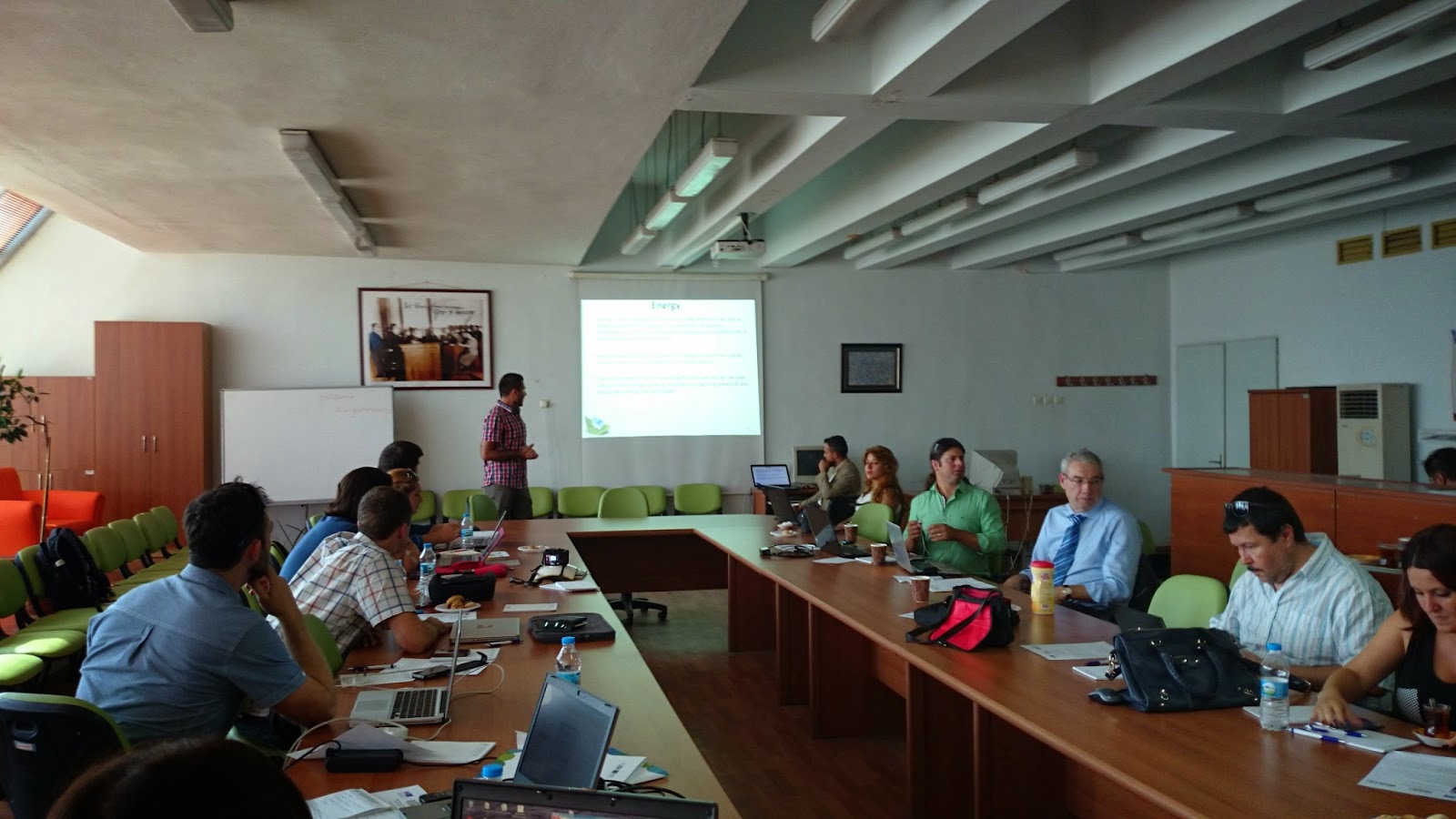In the UK, The Department for Communities and Local Government (DCLG) is responsible for making sure buildings in the UK meet the standards required by the EU’s Energy Performance of Buildings Directive. The Directive requires that:
- all properties (homes, commercial and public buildings) must have an Energy Performance Certificate (EPC) when sold, built or rented
- larger public buildings over 500m² must display a Display Energy Certificate (DEC)
- all air-conditioning systems over 12kW must be regularly inspected by an Energy Assessor
Meeting in Turkey helped the group to re-connect and to compare and see live what work is being done in Turkey. We've heard interesting presentations from our Turkish colleagues and their partners on how Domestic Energy Assessment had been implemented here. The Turkish approach to assessing software that was available in the market was to compare them. Their clear winner was a US software package that had clear advantages in being easy to use on both the front and back-end of the software enabling our Turkish partners to amend it for their specifications.
 One the first day we went through the project's programme and assessing progress against all objectives. We have heard presentations from partners and then had a tour of the building where RA Enerji is located. The building belongs to the larger EGE University and houses the EGE Solar Centre where we were able to see the making of solar panels (soldering, laminating of individual cells onto a larger frame). In the evening we explored Izmir. On day two we agreed on the Final Report structure
One the first day we went through the project's programme and assessing progress against all objectives. We have heard presentations from partners and then had a tour of the building where RA Enerji is located. The building belongs to the larger EGE University and houses the EGE Solar Centre where we were able to see the making of solar panels (soldering, laminating of individual cells onto a larger frame). In the evening we explored Izmir. On day two we agreed on the Final Report structureHere are some UK websites, useful for assessing EPC's and understanding potential energy saving measures:
EPC Advisor: https://www.epcregister.com/
Domestic Energy Performance Certificate Register:
https://www.epcregister.com/
Find a Domestic Energy Assessor
https://www.epcregister.com/
Funky Renewables, UK
The third project meeting took place in Izmir, Turkey, 21st – 22nd September 2014. The attendees from Austria were Johannes Kohlmaier, who is already an expert in the analysis of international DEAs, and Elisabeth Ritt, who got a valuable insight on the heterogeneity of the researched topic.
 The morning of the first project meeting day focused on an update of the project work that has been
The morning of the first project meeting day focused on an update of the project work that has beenaccomplished so far. An overview by each partner was given concerning the case studies for the conducting professionals: the Energy Assessors (background, requirements, formation, certification, validity etc.) and the objects of the assessments: the domestic buildings (method of assessment, structure of certificate, calculations, recommendations etc.).
After a highly enjoyable Turkish lunch with a typical black tea, the afternoon led the focus more deeply into the surveyed objects: we discussed the similarities and differences in the calculation software that is used for conducting the assessments. A Turkish DEA gave a deep insight into their used software, bepTR.
After a night of socializing, the second project day went on with discussions on the calculation software, their strengths and weaknesses and the impact on the assessments. Finally, the structure of the DEA report was talked over and finalized. Also the agenda and place / time for the next meeting have been proposed: Germany in May 2015 it will be.
As Izmir is in September still a worthy spot to visit as tourist, many project members took the chance and extended their stay to enjoy the 30° and the palms. Summarizing, it was a meeting that met professional and private desires.
CPC, Austria

